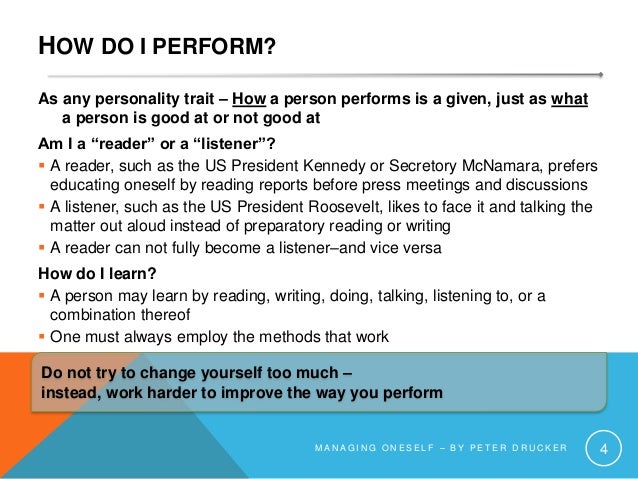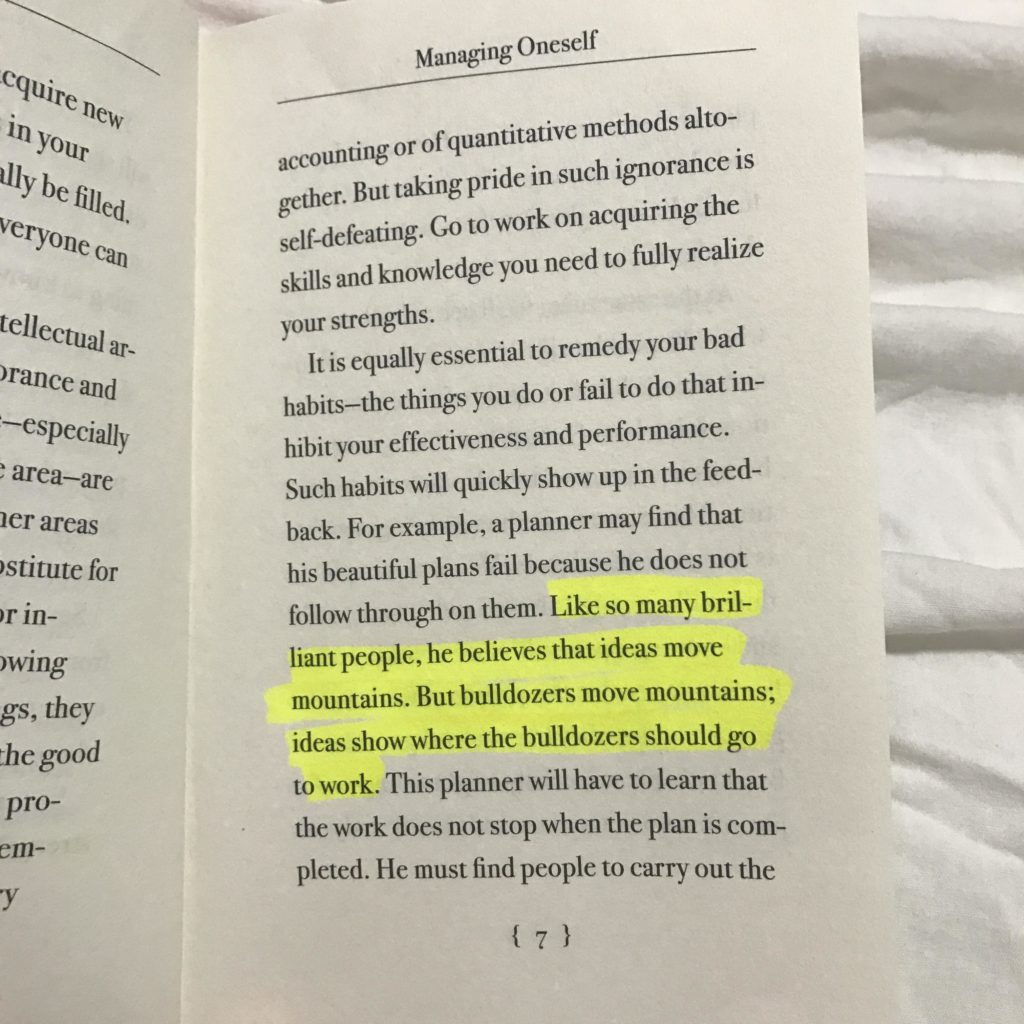
Work to improve your performance.” - Druckerĭrucker says few people know how to get things done.

You are unlikely to succeed if you try to change yourself. Lesson 2: In terms of performance, how do you fare? Therefore, you should put your time, energy, and resources into transforming from a competent individual into a star performer.

“Improving from incompetence to mediocrity takes significantly more energy than improving from first-rate performance to excellence.” When you compare your achievements to your expectations, you'll see what you're good at and what you shouldn't do. The third step is to figure out where your intellectual arrogance leads to incapacitating ignorance and overcoming it The second step is to work on enhancing your strengths The first and most important step is to focus on your talents If you don't have any strengths and are unable to performĭrucker illustrates how feedback analysis has numerous ramifications for action: Situations when you aren't exceptionally skilled What you are doing (or not doing) that prevents you from fully exploiting your abilities This simple approach of feedback analysis, if used regularly, should reveal where your strengths lie, which is the most crucial thing to know. Then, you should compare the actual results to the expectations ten or eleven months later. For example, if you make a significant resolution, you should write down what you hope to accomplish. Analyzing feedback is one way to go about it. You need to recognize your strengths to determine where you fit. Many people believe they know what they're good at, but they're almost always mistaken. Main takeaways from Managing Oneself by Peter F. His book Managing Oneself, has the power to transform your life for good. Drucker is also widely recognized as the pioneer of modern management studies. He was a prolific author and an influential management theorist whose material is still used by executives worldwide. Drucker's management publications are outstanding in terms of consistency and simplicity.

Drucker is regarded as the father of management thinking, having produced 39 volumes on the topic over a seven-decade period.

“Those who know themselves–their strengths, their values, and how they best perform–will achieve success in the knowledge economy.”


 0 kommentar(er)
0 kommentar(er)
